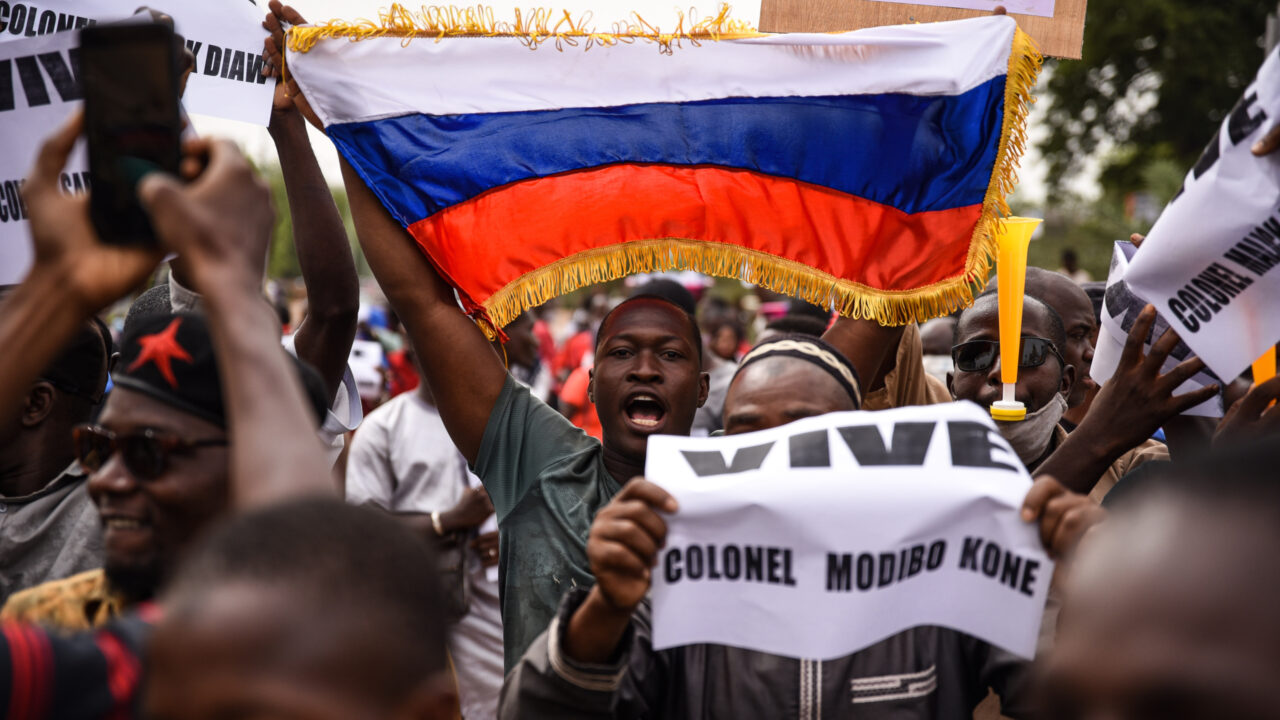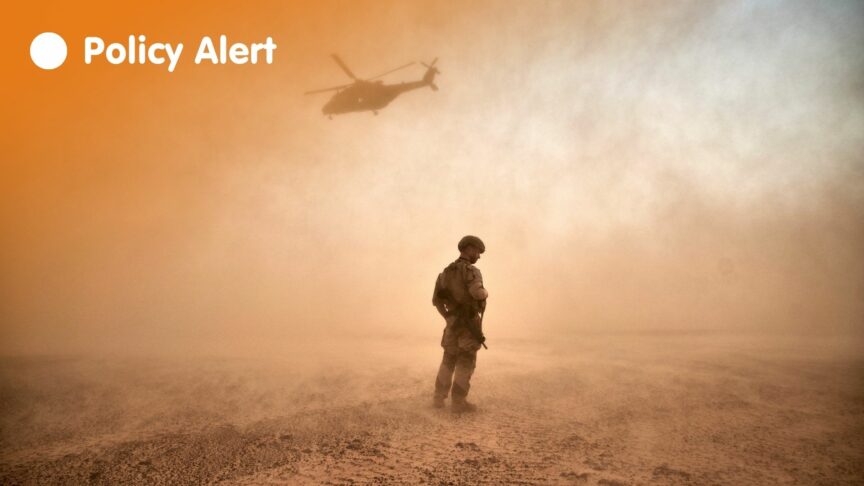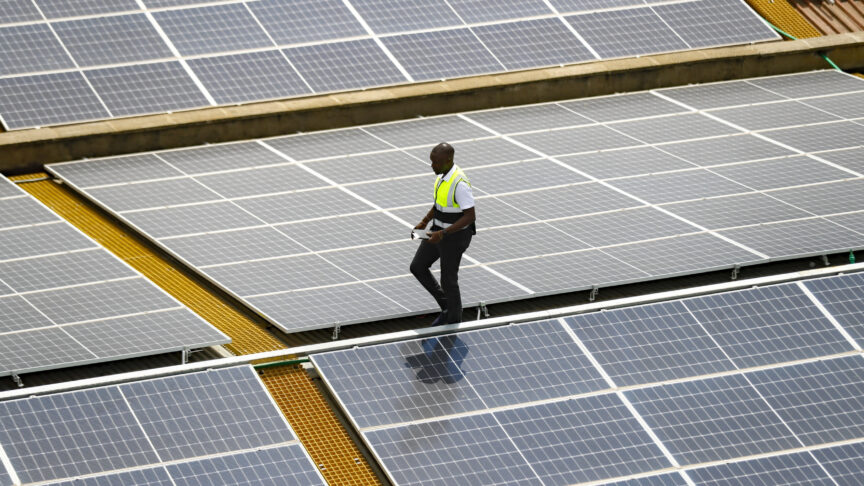Middle powers, big impact: Africa’s ‘coup belt,’ Russia, and the waning global order
The changing global order has created an enabling environment for the recent spike of takeovers in Africa’s ‘coup belt’ – with Russia and newly assertive middle powers offering themselves as partners to putschists
Coups d’états have returned to Africa. In the 1990s and 2000s, the number of forced takeovers of power on the continent fell; but the figure began to creep back up around 15 years ago. This deterioration has come to particular prominence with the emergence of a ‘coup belt’ spanning from Sudan to Niger (and mostly recently Gabon), where eight coups have taken place in the last three years.
The drivers behind coups range from state fragility to weak economic development. But such factors were also a constant in the decades immediately after the end of the cold war – when Africa experienced fewer coups.
The overlooked factor is the weakening of global order and the coup-enabling international environment it has created. Policymakers should consider, in particular, the role that activist ‘middle powers’ and Russia are now playing in taking advantage of an increasingly lawless international setting.
US retrenchment, selective AU enforcement
As the United States retrenches to pursue its strategic competition with China, its capacity to invest seriously in both strategic imperatives and values-led foreign policy objectives is coming under strain. With the essential taking precedence over the good, upholding democracy in Africa has slipped down the list of America’s strategic priorities.
Africa’s own system for deterring takeovers has also weakened considerably. The African Union’s enforcement of its coup-prohibiting rules grew increasingly inconsistent during the same period, during which time it began to enforce only selectively, due to the whims of powerful AU member states. This started with the coup in Mauritania in 2008, and was followed by President Sisi’s post-coup election in Egypt, and more recently by coups in Chad and Sudan.
The interregnum and the rise of the middle powers
To paraphrase Gramsci, the international rules-based order has not yet died so the new order cannot be born. The world thus finds itself in an interregnum in which the rules-based order is fraying but where the next iteration of global order is yet to emerge.
Aware that the world around them is changing, African leaders worry that a new version of cold war is developing, and that they are at risk of being forced to choose a side – America or China. But a cold war-style scenario is not a given, which means African leaders may be preparing for the wrong thing. This risks obscuring a major challenge created by the interregnum: the rise of assertive middle powers.
With global order in flux, middle powers seek to maximise their sovereignty and expand their influence. For middle powers in the Gulf, to Egypt and Turkey, those twin ambitions translate into treating the Horn of Africa as their near abroad. Russia surges into the coup belt sharing the same middle power motivations, but it differs on one count: desire to undermine the West. The opportunity generated by coups determines where Russia chooses to engage. But pursuing its rivalry with the West provides a second motive for Russia’s focus on the western half of the coup belt: it works to push back the strongest European influence, namely France’s presence in francophone Sahel states.
The opportunity presented by the evolving global order supercharges middle powers’ interventions
Naturally, Russia’s and middle powers’ engagement in Africa pre-dates the interregnum, but the opportunity presented by the evolving global order supercharges their interventions. Russia and middle powers exploit US retrenchment and eroding AU norms by offering themselves as partners to putschists. Seeing the opportunity to gain influence in power-grabs, they move in and back their preferred horse. These include the UAE, Saudi Arabia, Qatar, and Turkey throughout the Horn of Africa, where Turkey is more focused on Somalia; the UAE, Saudi Arabia, and Qatar are more focused on Sudan. In the Sahel, Turkey is tentatively exploring economic and security cooperation in Niger, Burkina Faso, and Mali. Russia plays a role across the Horn of Africa and Sahel sections of the coup belt; its deepest footprint is in Mali and Burkina Faso. All active middle powers are eyeing the prize of Libya as part of the strategic rationale for getting involved in its bordering countries.
With increasing numbers of autocratic political entrepreneurs in the coup belt bidding for power, the opportunities for engagement multiply. Middle powers – and Russia, to a lesser degree – place serious political and financial capital behind their engagement as well as no-questions-asked security support. This creates outsize impact compared to the mid-level Western official engagement and more conditional provision of financial and security support. Even though they wield greater firepower, the abilities of middle powers’ diplomatic and security institutions have yet to catch up with the demands placed on them by their political masters’ robust will to act. The impact can be of the bull in the china shop variety.
Russia and middle powers create an enabling environment for Africa’s autocrats by making their international and African-regional isolation impossible. The previous, unipolar period allowed the US, with European flanking, all behind an African lead (generally the AU), to deploy carrots and sticks while corralling other external powers. But middle powers’ assertive go-it-alone policies hamper the formation of a critical mass of international support to disincentivise rule-breaking.
How to navigate this new landscape
African leaders grasp that changing global order is creating greater interest in Africa. They encourage new partners as a welcome means of diversification beyond the former confined choice of the US, old colonial powers such as France and Britain, or China. But the impact of Russian and middle power engagement in the coup belt demonstrates the pitfalls of such diversification. Rather than creating an additionality of options for Africa’s benefit, Russian and middle power engagement strengthens African autocrats and feeds state destabilisation.
There will be no return to the unipolar US-led order; no American linchpin to hold together the rules-based order against coups in Africa. Even if the US were to reallocate political capital to this end, the interregnum phase has already created shifts in global order of a magnitude that makes assertive middle powers and Russia near impossible to contain.
Nor can muscular engagement by France in its former colonies – the Sahel swathe of the coup belt – fill the US leadership gap. As much as France struggles to retain its primus inter pares role among European powers in the Sahel, the fever-pitch of anti-French sentiment in its former Sahel colonies constrains its efficacy.
When encouraging all-comers to support development in their countries, African leaders may have lingered too little on the drawbacks of Russia’s and middle powers’ engagement. If their fear was of Africa’s instrumentalisation by China and the US, then Russia and middle powers are not creating greater African agency. As it stands, they simply add to the number of actors instrumentalising Africa. That is the true wake-up call sounded by the Niger coup.
The European Council on Foreign Relations does not take collective positions. ECFR publications only represent the views of their individual authors.



